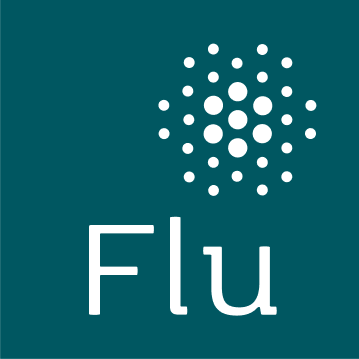When people think about getting their annual flu vaccine, they might not realize there are different options. Yet there are many types of flu vaccines available today—all considered safe and effective—with distinct differences between each.
The different types of flu vaccines
Each year, different types of flu vaccines are made to provide protection against four influenza viruses that research shows will be the most common ones to circulate. Flu vaccines have traditionally been made through viruses grown in chicken eggs, although egg-free vaccines have been developed in recent years. The different types of flu shots available in the United States include:
- Standard-dose flu vaccine, which is made with flu viruses that are inactivated or killed. Many standard-dose flu vaccines that use viruses grown in eggs are approved for use in people aged 6 months and older and usually given through a needle injection in the arm muscle
- Cell-based flu vaccine, an injectable egg-free vaccine that is made through virus grown in mammalian cell culture. This type of vaccine can be given to people who are aged 6 months and up
- Recombinant flu vaccine, an injectable egg-free vaccine that is synthetically made. Recombinant flu vaccines can be used in people who are 18 years of age and older
- Adjuvanted flu vaccine, which includes an additional ingredient (an adjuvant) designed to increase, broaden and lengthen the immune response to the vaccine. Adjuvanted flu vaccines are injectable and approved for use in people who are aged 65 years and up
- High-dose flu vaccine, which features a higher amount of antigen than standard-dose flu vaccines; in this context, antigens are the part of the vaccine that helps the body build up an immune response. Like adjuvanted flu vaccines, high-dose flu vaccines are injectable and specifically approved for use in people aged 65 years and older
- Live attenuated flu vaccine, which contains a weakened flu virus and is given through a nasal spray. People who aged 2 to 49 years old can receive this vaccine, but some (for example, those who are pregnant or immunocompromised) should not get it
Core vaccine manufacturing technologies are used to produce a range of flu vaccines
Although there are clearly many vaccines that offer protection against the flu, there are currently only a few underlying technologies that are used to make flu vaccines. Each of these technologies target flu virus strains that have been selected that year by the World Health Organization (WHO). These selections are based on research that indicates these strains will be the most likely ones to spread the flu, causing illness among the general population.
What are egg-based flu vaccines?
Egg-based flu vaccine manufacturing is the most common method and has been used for decades. This technology involves growing and incubating the virus in chicken eggs, then inactivating or killing the virus. The virus antigen remains and is purified before the vaccine is finally tested and distributed for use. When human viruses are grown in eggs, they need to be able to infect the host bird (also called “avian”) cells. Avian cells have slightly different receptors on their cells than human cells do, so it is harder for the human viruses to recognize and grow in the avian cells. Sometimes the human flu viruses need to change to overcome this problem. Using eggs to grow flu viruses can therefore create some viral changes during manufacturing that may affect how effective the vaccines are in fighting the flu.
About non–egg-based flu vaccines
In more recent years, 2 non–egg-based manufacturing technologies have been used to produce flu vaccines.
Cell-based flu vaccines are made by growing flu virus in cultured mammalian cells. Because cell-based vaccine manufacturing does not use egg-based technology, it avoids any changes or mutations in the virus that can occur in egg-based vaccine manufacturing. This approach is designed to produce an exact match to the WHO-selected flu strains and could potentially provide better protection against flu than egg-based flu vaccines.
Recombinant flu vaccines are created synthetically by combining a gene with a baculovirus (a virus that infects invertebrates). Because recombinant vaccine manufacturing does not use egg-based technology, it avoids any changes or mutations in the virus that can occur in egg-based vaccine manufacturing. Like cell-based flu vaccines, this approach is designed to produce an exact match to the WHO-selected flu strains and could potentially provide better protection against flu than egg-based flu vaccines.
Recent study results on different vaccine types in older adults
According to the Advisory Committee on Immunization Practices (ACIP), a group of medical and public health experts that develops recommendations on vaccines to control diseases in the United States, adults aged 65 and older should receive an adjuvanted influenza vaccine or a higher-dose influenza vaccine over standard-dose vaccines. If these two vaccine types are not available, adults of this age group can receive a standard-dose flu vaccine.
This preferential recommendation helps guide both healthcare providers and patients on the standard of care to protect these at-risk people against the flu. The ACIP unanimously voted for this recommendation after an extensive evaluation of many clinical trials and real-world evidence.
It is worth noting that findings from a CDC-sponsored study during the 2017–2018 flu season showed that older adults who were given an enhanced influenza vaccine (either recombinant flu vaccine, adjuvanted flu shot, or high-dose flu vaccine) demonstrated greater immune responses than those who were given egg-based standard-dose flu vaccines. (Although the study was conducted in Hong Kong, all vaccines used in the study were licensed for use in the United States.)
Regardless of the technology used, the Food and Drug Administration (FDA) tests and approves all vaccines before they are released and shipped for distribution and use.
Which flu vaccine should you get?
With rare exceptions, the CDC recommends that everyone who is 6 months of age and older should get a flu vaccine every year.
Ultimately, you should talk to your healthcare provider about your vaccine options to make sure you know which flu vaccine is an appropriate option for you.




